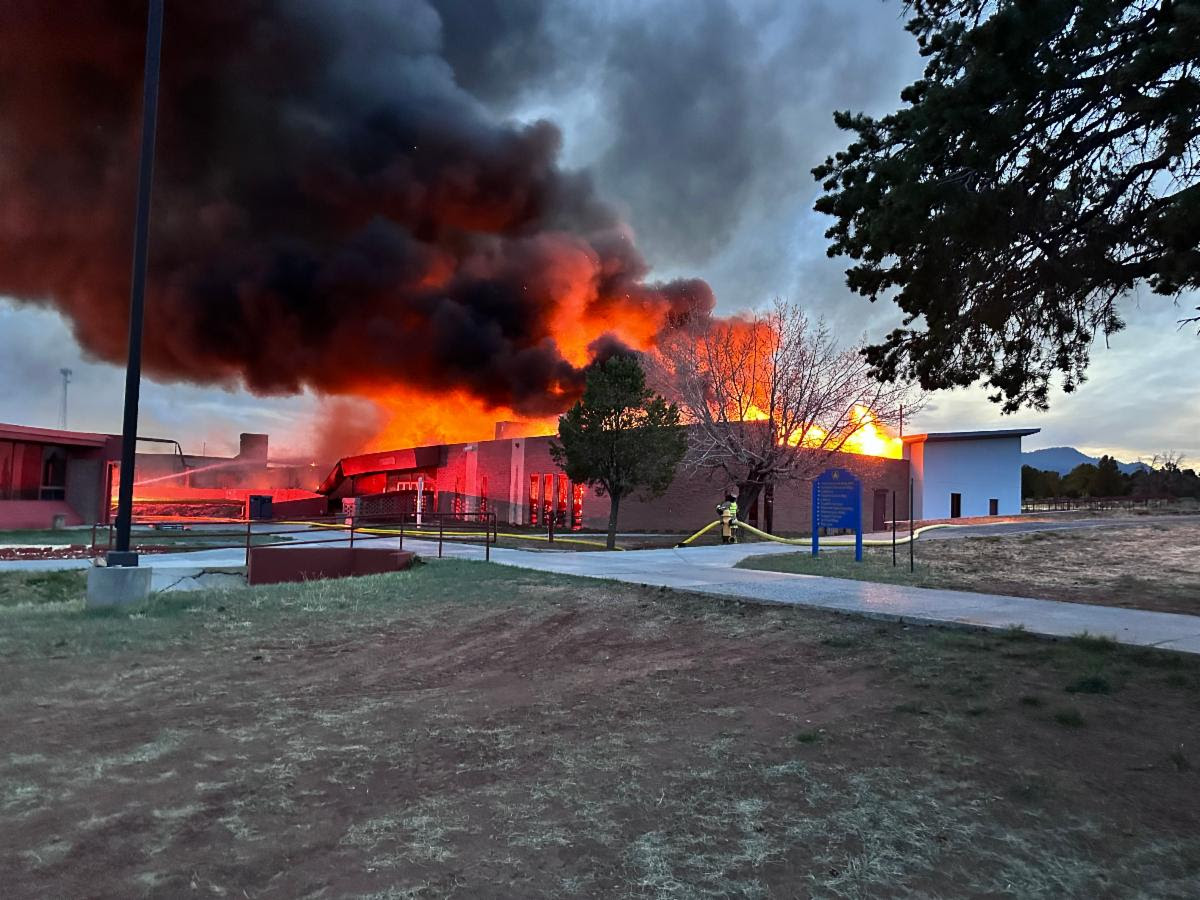
- Details
- By Levi Rickert
A massive overnight fire destroyed the Student Union Building at Diné College, located on the Navajo Nation Reservation in Tsaile, Arizona.
The blaze was discovered around 2:15 a.m. Monday, prompting the cancellation of classes for the day. Due to the scale of the fire, officials shut off propane service to the campus dormitories. Although the cafeteria remained open, students were served cold meals. Electrical generators were brought in to provide limited power to the campus.
Campus security quickly notified the Navajo Nation Fire and Rescue Service and the Navajo Nation Police Department. However, the fire proved difficult to contain due to the college’s remote location and the absence of a nearby fire station.
As of Monday afternoon, the fire was still burning.
Later that day, the 25th Navajo Nation Council issued a statement expressing deep gratitude to the Navajo Nation Police Department, Fire Department, and campus security for their rapid and coordinated response, which helped contain the situation and ensured the safety of students and staff.
“Diné College is more than an academic institution — it is a symbol of self-determination and a beacon of opportunity for our people,” said Speaker Crystalyne Curley. “For generations, it has empowered our students to pursue higher education while staying rooted in our culture and language. We stand in solidarity with Diné College and remain committed to supporting the college during this time of recovery. The strength of our Nation is reflected in the strength of our schools.”
The cause of the fire is being investigated. No injuries were reported.
The college has an undergraduate enrollment of approximately 1,550.
More Stories Like This
Native Students Can Win $5,000 Scholarship, International Distribution in Pendleton Design ContestAmerican Indian College Fund Raises Alarm Over Plan to Shift Native Programs Away From the Dept. of Education
MacKenzie Scott Foundation Gives $5 Million Contribution to Little Priest Tribal College
Tribal Leaders Push Back on Dismantling of U.S. Department of Education
American Indian College Fund Names 12 Student Ambassadors for 2025–26
Help us defend tribal sovereignty.
At Native News Online, our mission is rooted in telling the stories that strengthen sovereignty and uplift Indigenous voices — not just at year’s end, but every single day.
Because of your generosity last year, we were able to keep our reporters on the ground in tribal communities, at national gatherings and in the halls of Congress — covering the issues that matter most to Indian Country: sovereignty, culture, education, health and economic opportunity.
That support sustained us through a tough year in 2025. Now, as we look to the year ahead, we need your help right now to ensure warrior journalism remains strong — reporting that defends tribal sovereignty, amplifies Native truth, and holds power accountable.
 The stakes couldn't be higher. Your support keeps Native voices heard, Native stories told and Native sovereignty defended.
The stakes couldn't be higher. Your support keeps Native voices heard, Native stories told and Native sovereignty defended.
Stand with Warrior Journalism today.
Levi Rickert (Potawatomi), Editor & Publisher


